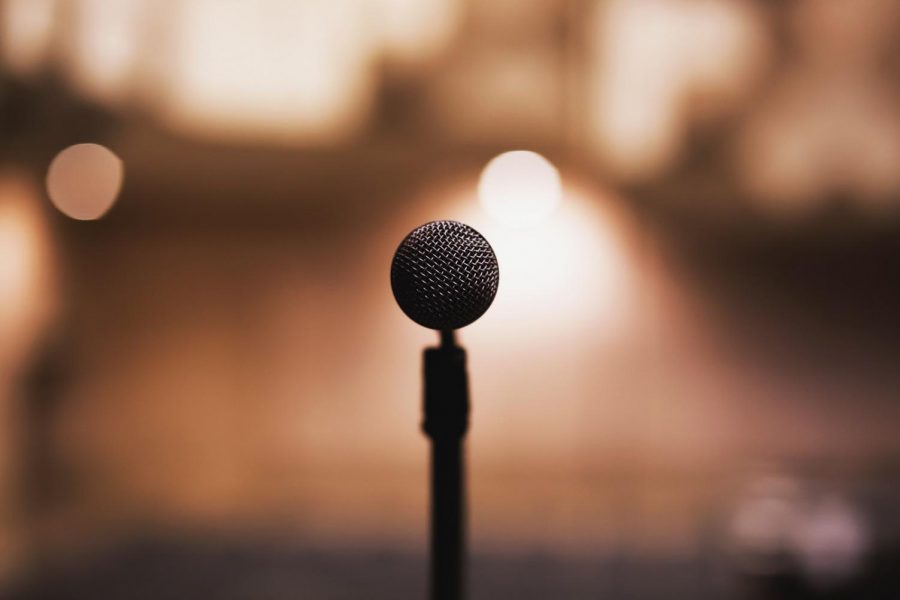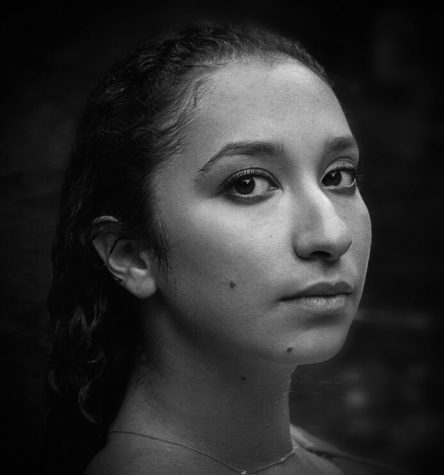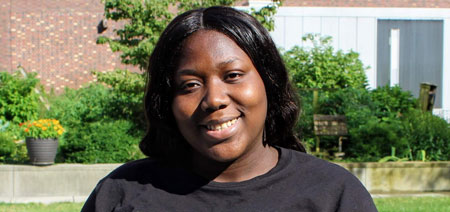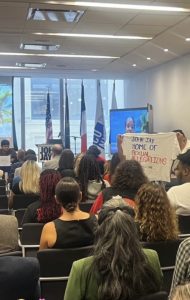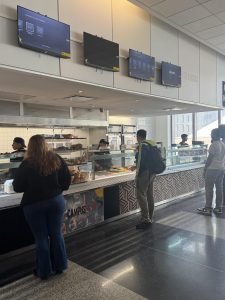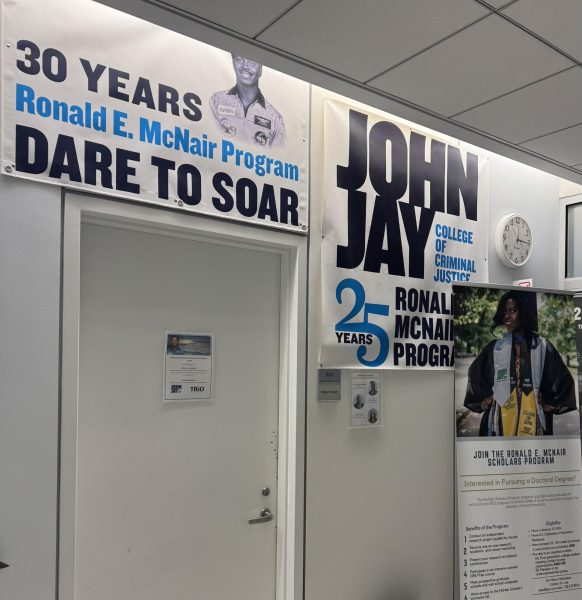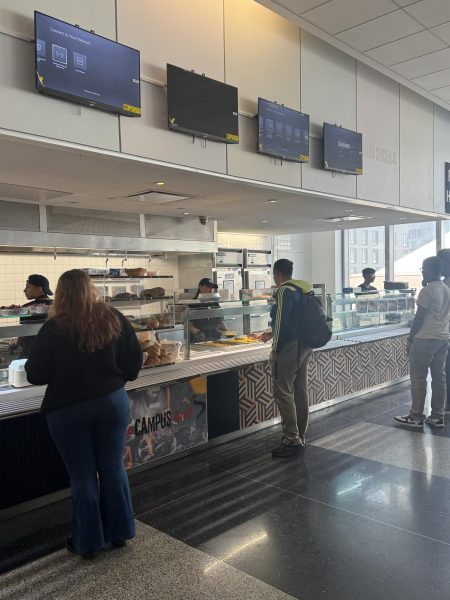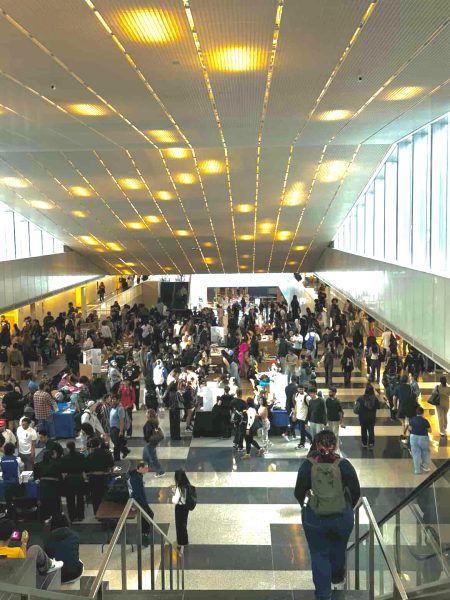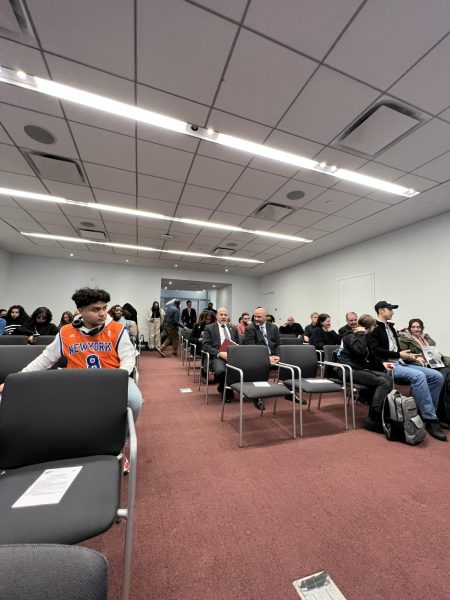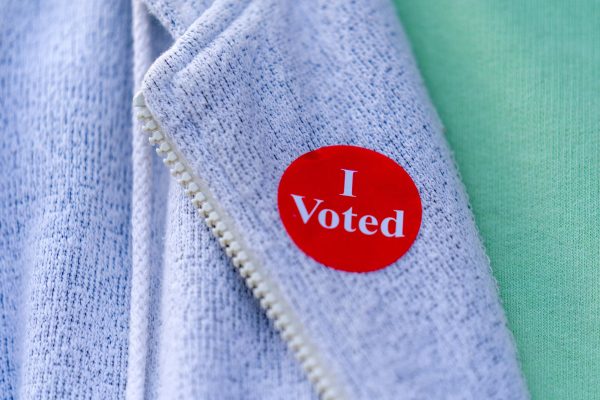John Jay Students and Faculty Weigh in on The First Presidential Debate of 2020
October 2, 2020
The first presidential debate of 2020 was on Tuesday, September 29th. President Donald Trump and Former Vice President Joe Biden convened on stage in Cleveland, Ohio.
Moderator Chris Wallace of Fox News, started the debate with an introduction, followed by the rules; which both parties agreed to. The debate was sponsored by the Commission on Presidential debates, who also designed the format.
The 90-minute debate was set broadcast on more than 8 channels. With 6 segments, each one was approximately 15 minutes.
According to The Nielsen Ratings, as many as 73 million people tuned in to watch the debate on television; with an unknown number of people listening by radio or phone.
“It was very hectic and crazy. There was a lot of talking at once,” said Raqiba Tention, a Sophomore at John Jay.
The first segment was discussing the Supreme Court and its vacancy. Both candidates were given 2 minutes in each segment, to state why they were right and their opponent was wrong; leaving the remainder of time for open discussion.
“There’s a difference between being aggressive and being a bully. It’s about convincing people to pass laws that will improve the lives of Americans,” said Andrew Berezhansky, a Senior at John Jay.
Biden argued that because the election has started, we should wait and see what the outcome is so the American people get to express their view based on who they elect as President and Vice President.
On the other hand, Trump argued that he has more than enough time, even after the election itself, while referencing Former Supreme Court Justice, Ruth Bader Ginsburg to support his point.
“I continue to deeply worry about American democracy because it’s clear there’s one candidate who doesn’t believe in it himself,” said Brian Arbour, Associate Professor of Political Science at John Jay.
Before the second segment happened, which was declared to be COVID-19 related, Trump went off on a tangent to the moderator about his healthcare plan and the money he believed was saved because of it.
At one point Wallace had to notify the President that he was debating Biden and not him.
“That Donald Trump behaved this way was never out of the realm of possibility, so I can’t be shocked by it,” Arbour said.
When it was Biden’s turn to speak, he was interrupted several times by the President, and both candidates were talking simultaneously, with Wallace trying to be respectful of both candidates. President Trump even found himself arguing with the moderator about who’s done more interrupting.
“Trump isn’t disciplined enough for a debate; Biden wasn’t at his best. We all know what kind of man Trump is. Biden should have taken that into consideration and played his game,” said Kermina Tofek, a Senior at John Jay.
Insults and personal matters were ultimately thrown into the mix. At times in the debate, Biden found himself defending his family; more specifically his sons.
“I thought that Biden would handle things differently. I anticipated that President Trump would attack him. I was thinking about the line from the Obama administration, ‘when they go low, we go high’,” said Jack Jacobs, Professor of Political Science at John Jay and The Graduate Center.
On the issue of racism and equality in America, Biden confirmed that “There’s systemic injustice in this country, in education and work and in law enforcement and the way in which it’s enforced.” In Trump’s argument, he ended racial sensitivity training because it was racist.
He said, “people were complaining that they were asked to do things that were absolutely insane. That it’s a radical revolution that was taking place in our military, in our schools, all over the place.”
“The thing that’s most surprising, and the thing that will hurt President Trump the most, is his refusal to condemn the white supremacists” Jacobs said.
The same can be said for 3 John Jay Students, all of whom are members in Student Council. Andrew Berezhansky, Jayvon Thomas, and Raqiba Tention agree that the worst moment was seeing Trump’s refusal to condemn white supremacy.
“It was atrocious ,” said Jayvon Thomas, a Senior at John Jay.
Climate change, the economy, and voting, were the last topics to be discussed. With interruptions from both sides, Wallace found it hard to control.
While this was a shocking debate, and possibly one that could enter into the history books, the future is uncertain.
“I believe there were no winners. Nothing was learned. The election of the United States President is serious and it was not treated that way during this debate,” said Alekxa Burkhardt, a Junior at John Jay.
The vice presidential debate will be on October 7th, at 9 p.m. EST with Vice President Mike Pence and Democratic Vice Presidential Nominee Kamala Harris.
There are a total of 3 presidential debates with the next two happening on Thursday, October 15th and Thursday, October 22nd, at 9 p.m. EST.


